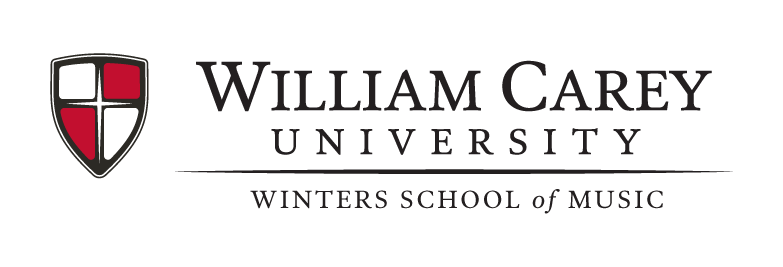School of Music
The Donald and Frances Winters School of Music at William Carey University prepares students for leadership roles in music.
Called to Worship
Study at The Donald and Frances Winters School of Music is designed to blend faith and learning for real‑world applications. Students are challenged to grow in their talent, mature in their spiritual walk, and prepare for a meaningful musical career, so they may fully discover God’s plan and purpose for their life. The School of Music Vision Statement is One Goal - One Passion taken from Philippians 4:8. Our One Goal is Excellence through education and performance, and our One Passion is Jesus in worship and in service. We hope you will decide to be a part of what God is doing in the Winters School of Music!
One Goal.
One Passion.
William Carey University is an All-Steinway School, the first in Mississippi. The Winters School of Music is committed to providing students with the best possible pianos available for the study and performance of music. All music students are affected by the quality of the pianos. Steinways enhance the creative potential in each student and in each collaboration.
Hattiesburg
WCU Box #14 | 710 William Carey Parkway | Hattiesburg, MS 39401
music@wmcarey.edu | (601) 318 - 6175
Tradition
19640 Highway 67 | Biloxi, MS 39532
music@wmcarey.edu | (601) 318 6175





